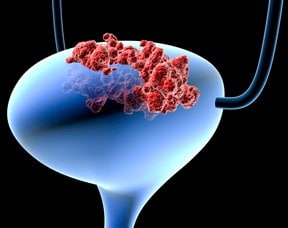NEW YORK, NY (PRWEB) JANUARY 10, 2017
A new study out of Austria and published in Urologic Oncology, found a high incidence of prostate cancer (PCa) accompanying radical cystectomy (RC) specimens of men who had undergone the procedure for advanced bladder cancer. It was found that more than 50 percent of men (53.1%) had PCa in the RC specimen taken when their bladder was removed.
“This finding collaborates with other past studies that also found incidental prostate cancer in men who had bladder cancer after they had the procedure of a radical cystectomy,” explained Dr. Samadi. “I believe as a urologist, we need to be aware of these findings when we have male patients with bladder cancer. We need to evaluate each man based on different factors such as his age and family history for prostate cancer and then go from there on determining the likelihood of the possibility of him having not just bladder cancer, but also prostate cancer.”
This new research spanned 10 years and involved 213 men who had underwent RC at the Medical University in Innsbruck, Austria. Results showed of the 213 male patients, 113 or 53.1% had PCa in the RC specimen taken at the time of the procedure. Also found was that over half of the 113 men (59 of 113) had a Gleason score of 7 or higher on the final pathology. A Gleason score is a grading system from 1 to 10 used to evaluate the prognosis of men with prostate cancer using samples from a prostate biopsy. The higher the Gleason score, the more likely it is the cancer will grow and spread quickly
Age was another factor as older men were found to have significantly more PCa than younger men. Of the patients who had PCa in their RC specimen, the mean age was 69.7 years whereas the mean age of men without PCa in their RC specimen was 67.2 years.
“The risk of prostate cancer does increase as a man ages so this finding is not surprising,” stated Dr. Samadi. “A man’s age has always been known to be a risk factor and is an important predictive factor of prostate cancer. The real message here is do we perform radical cystectomies to always be the best choice to go with for a man with localized bladder cancer.”
Currently, RC is the standard treatment in a man with advanced bladder cancer that is localized muscle-invasive bladder cancer or recurrent, high-risk non-muscle invasive bladder cancer. The procedure of RC in men includes the removal of the bladder, prostate, seminal vesicles, and distal ureters, bilateral extended pelvic lymphadenectomy, and urinary diversion.
“What can make it difficult is that if a younger man is diagnosed with advanced bladder cancer and he has a radical cystectomy, this means he will have issues with urination and sexual function,” said Dr. Samadi. “There has been a trend of using a technique called prostate-sparing cystectomy that does not remove the prostate in order to save those others important functions. However when we do spare the prostate by not performing a radical cystectomy, then there is still the risk of prostate cancer that may have been involved with his bladder cancer or the possibility of the existence of prostate cancer as a second malignancy.”
“The main takeaway from this study is that when a man presents with bladder cancer, particularly advanced bladder cancer, there is a good chance he also has prostate cancer,” explained Dr. Samadi. “This is why it is highly recommended that even if a man’s risk for prostate cancer is considered low, they should still have a PSA test after follow-up of a radical cystectomy. As far as a prostate-sparing cystectomy, this should only be considered for men who have been determined not to have prostate cancer before the surgery by means of a digital rectal exam and a PSA test.”
Patients newly diagnosed with prostate cancer can contact world renowned prostate cancer surgeon and urologic oncologist Dr. David Samadi at 212-365-5000 for a free phone consultation. To learn more about prostate cancer, visit ProstateCancer911.com.


